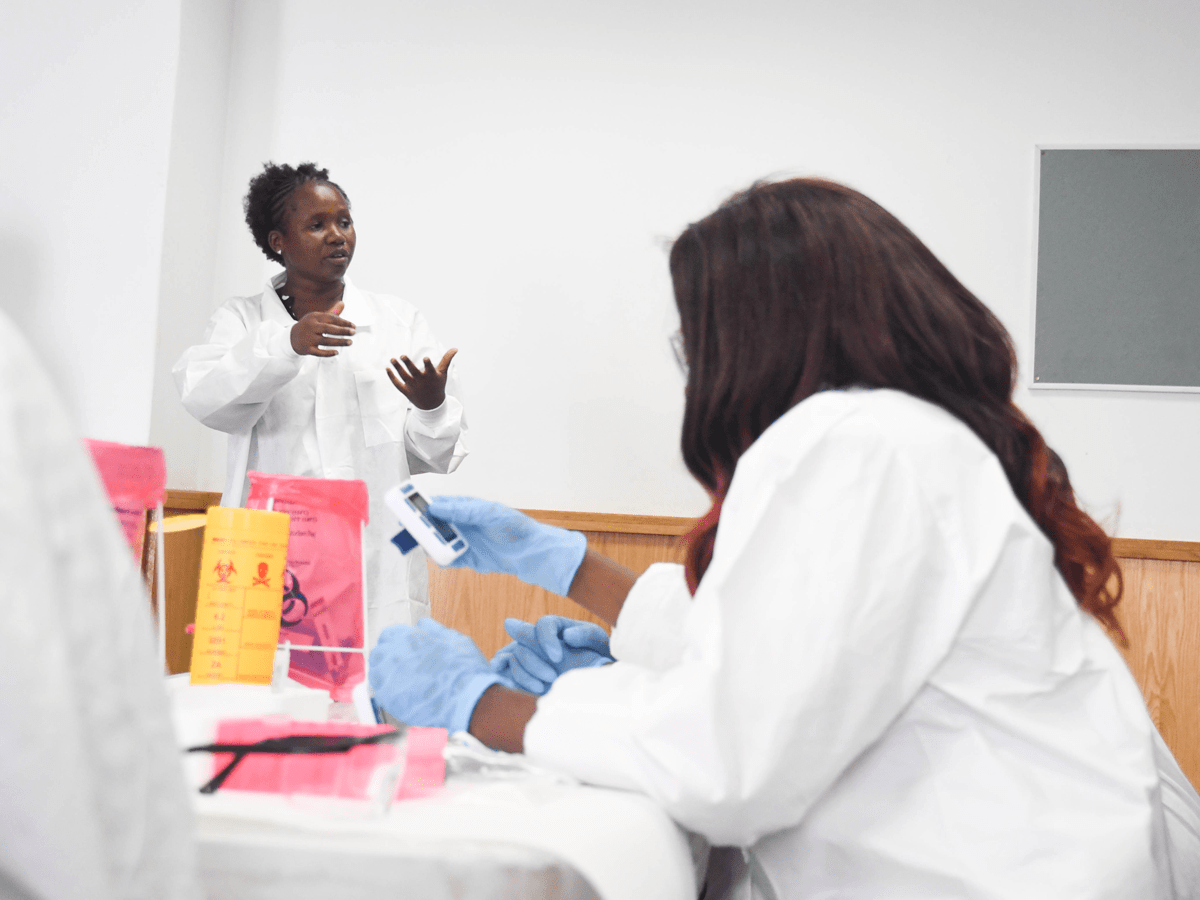ICAP has kicked off a series of technical trainings across Lesotho to build a cadre of HIV counselors and testing officers well-versed in using innovative HIV recent infection testing technologies as part of the national response to the HIV epidemic. Expanded use of the new test in routine HIV testing services will offer new opportunities to target prevention efforts and accelerate progress toward epidemic control. The training campaign is supported by the President’s Emergency Fund for AIDS Relief (PEPFAR) through the US Centers for Disease Control and Prevention (CDC) in partnership with Lesotho Ministry of Health, and PEPFAR partners.
“With these trainings, our hope is to build a cadre of qualified HIC counselors and local trainers who are well-versed in using the Asante recency testing technology as part of Lesotho’s national response to the HIV epidemic,” said Limakatso Lebelo, program coordinator for ICAP in Lesotho. “By training up individuals embedded in testing points at health facilities within the national health system, we can ensure that Lesotho is able to utilize this cutting-edge testing technology for the betterment of communities impacted by HIV.”
Over the next year in Lesotho, ICAP aims to train over 1,300 HIV testing counselors and 25 lab quality officers in using a new, point-of-care rapid HIV test that distinguishes a recent HIV-1 infection (acquired within the last 12 months) from a long-term infection (acquired more than 12 months ago). Known as the Asante HIV-1 Rapid Recency Assay, the new HIV testing technology combines verification of HIV diagnosis and differentiation between recent and long-term HIV infection in one testing device. When used in conjunction with other HIV epidemiological tools, HIV data collected through recency testing at the national level allows health bodies to monitor where and when patients are being infected. This HIV data can be used to target HIV prevention programs to prevent related new infections, and ultimately interrupt further transmission of the virus to help end the epidemic.
“Identifying people with undiagnosed HIV infection, especially those who have been recently infected, is essential to realize the individual benefit of rapid treatment initiation and to prevent HIV transmission to others,” said Felix Ndagije, ICAP country director in Lesotho. “ICAP provides sustainable technical assistance to support recency testing implementation as part of the TRACE project. Our close collaboration with EGPAF, as the national implementer of recency testing here in Lesotho, and with the ministry of health ensures that recency testing will be institutionalized as a critical component of Lesotho’s HIV testing algorithm.”
The training initiative in Lesotho is part of the Tracking with Recency Assays to Control the Epidemic (TRACE) program, a global initiative to provide real-time data of recent HIV infections in order to more efficiently direct public health resources. ICAP supports recent infection testing in eight countries: Democratic Republic of Congo, Eswatini, Ethiopia, Lesotho, Nigeria, Rwanda, Tanzania, and Zimbabwe.
A global health leader since 2003, ICAP was founded at Columbia University with one overarching goal: to improve the health of families and communities. Together with its partners—ministries of health, large multilaterals, health care providers, and patients—ICAP strives for a world where health is available to all. To date, ICAP has addressed major public health challenges and the needs of local health systems through 6,000 sites across more than 30 countries.








